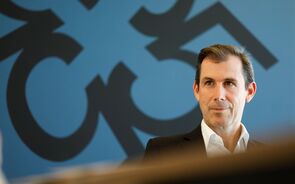Universidade de Michigan
1 Mensagem
|Página 1 de 1
Universidade de Michigan
For a Fee, University of Michigan Shares a Confidence With You
-- For $4,650 a year, the University of Michigan will tip you to a number that moves stock and bond markets.
That's what the university charges J.P. Morgan Chase & Co.,
UBS AG and 100 other firms to listen to the conference call as it
discloses the consumer-confidence index every month.
The Michigan consumer index is the only U.S. economic
indicator that's sold to insiders before the public sees it. The
tax-supported state university first sells the survey to those it
calls sponsors -- brokerages or companies that can turn their
advantage into a quick profit.
``These numbers move markets and only some people have access
to them,'' said Mercer Bullard, a former assistant chief counsel
at the Securities and Exchange Commission. ``This is a serious
regulatory issue that undermines confidence in markets.''
In October 2002, when the Michigan index fell more than traders
expected, the price on the benchmark 10-year Treasury note rose
7/32. A trader on the conference call who immediately bought $10
million in Treasuries, then sold as others reacted to the news,
would have profited by more than $20,000.
The University of Michigan is ``selling information so that
traders with a bigger pocketbook can take advantage of smaller
traders,'' said Robert Shiller, a Yale University professor and
economist. ``It's not the kind of business that the ideal of the
university suggests.''
The Federal Reserve, the Conference Board and more than a
dozen federal and nonprofit organizations release market-sensitive
news without charging for it. Unlike the University of Michigan,
all take steps to avoid selective disclosure.
Fairness First
The Federal Reserve Bank of New York posts money-supply data
under an embargo in a secure area on its Web site. The Fed gives
the press a half-hour to digest the news before its scheduled
release at 4:30 p.m. New York time on Thursdays.
``We don't favor one group of investors or one audience over
any other,'' said Peter Bakstansky, the Fed's spokesman in New
York. ``The first principles are principles of fairness.''
The Conference Board publishes its own confidence index on
the last Tuesday of the month. The media is given access to the
information 30 minutes before its release at 10 a.m., said Randall
Poe, the nonprofit group's communications director.
``To release it instantly would be to give preference to
whoever got it first,'' he said. ``It would be unfair. We operate
under the principle of trying to create an even playing field.''
Secrecy Pays
The Institute for Supply Management, a nonprofit trade group
for purchasing managers, issues a survey on business conditions
through Business Wire, an electronic press release service. It
moves at exactly 10 a.m. on the first business day of the month.
``We want to make sure everybody gets it at the same time,''
said Norbert Ore, head of the group's business survey committee.
``Timing is worth a good bit in the marketplace. There's an
inherent advantage in information somebody can glean about the
economy or markets that others don't have.''
The University of Michigan, by contrast, makes every effort
to selectively disclose its latest data. It excludes the media
from its list of subscribers and vows legal action against
subscribers who share reports, threatening to bar their access.
The university's Institute for Social Research, which
computes the index from monthly consumer surveys, says expenses
dictate its sales policy.
``The subscriptions pay for the cost of the survey, but just
barely,'' said Richard Curtin, the survey's director since 1976.
``By keeping the data secret for a little while, we can earn some
money to keep the survey going.''
Obligations
Last year, the surveys cost more than $824,100, according to
the institute's budget figures. Its revenue from brokerages,
companies researching consumer-buying habits and government
agencies totaled $989,500, earning the institute a profit of
$165,400.
The University of Michigan got $899 million in state and
federal funds for the fiscal year ending next June 30. Its mission
statement said such funds oblige it ``to make available to the
citizens of the state and nation that portion of its specialized
knowledge which provides the necessary background for social
decision.''
Still, university officials say there's no contradiction
between the university's ``obligations'' to the public and its
sale, and disclosure, to investors of specialized knowledge such
as the consumer index.
``The research is enabled by the sponsors who fund it,''
Julie Peterson, the university's vice president for media
relations, said in an e-mail statement. ``Therefore, it seems
appropriate that the sponsors would have access to the research
findings before they are shared with the public more generally.''
`Comfortable'
Mary Sue Coleman, the university's president, didn't respond
to repeated phone calls and e-mails seeking comment about the
fairness of the sales policy.
Later, after declining to answer questions from a reporter
who visited her office, Coleman said she was ``comfortable'' with
the university's position.
``We're just not going to make her available for an
interview,'' said Peterson.
The consumer surveys, the oldest in the country, have been
conducted since 1946 in Ann Arbor, Michigan, the university's
home. Curtin employs four full-time researchers and 30 part-time
workers who telephone 500 households and ask questions about job
prospects, spending plans and personal finances in trying to gauge
where the economy is heading.
Minute's Value
Curtin says the expense of running the surveys means the
institute is ``always six months from bankruptcy.''
Those who want a free, widely available survey should offer
alternative means of financing it, he said. Though the institute
guards the release of its news, the index number still moves on
newswires ``within a minute'' of the conference call, Curtin said.
``And I'm not talking a figurative minute -- I mean a literal
minute.''
That minute, however, is enough for traders to profit from
bets based on the conference call, usually held at 9:45 a.m. New
York time on the second and fourth Fridays of the month.
``All our traders have to do is hit a button to put a bid or
an offer into the screens,'' said Stephen Stanley, senior
economist at RBS Greenwich Capital Markets Inc., which subscribes
to the survey. ``If they have information that somebody on the
other side of that keyboard doesn't have, they can make a
profitable trade in a matter of a few seconds.''
Trading on Buzz
Smaller traders who don't pay to get on the conference call
rely on trading floor ``buzz.'' When the market suddenly moves,
cries of ``who's got the number?'' are sounded in the Chicago
Board of Trade's Treasury futures pit.
Moments later, traders are shouting the index number after
Bloomberg News, the Associated Press, and news services of Reuters
Group Plc and Dow Jones & Co. file headlines based on the survey,
quickly followed by stories.
Though the university doesn't let the press subscribe to its
consumer surveys, news services still manage to listen to the
conference calls and distribute the information.
The university's disclosure practices don't violate current
U.S. securities laws, according to Karl Groskaufmanis, a partner
in Fried, Frank, Harris, Shriver & Jacobson, a Washington law
firm. ``The information is getting into the market fairly
quickly,'' he said. ``But the fairness issue is still there.''
SEC Concern?
The SEC needs to consider regulating disclosure of such
``quasi-public information,'' said Bullard, now a law professor at
the University of Mississippi.
Just how useful the Michigan survey is in divining the
economy's direction is an altogether different matter, according
to some economists.
Federal Reserve Chairman Alan Greenspan in July said that he
watches spending, not confidence, to judge consumer behavior.
``Our interest is actually what people do, not what they say,'' he
said in discussing the economy before Congress.
``The consumer confidence surveys are of minimal predictive
value,'' said Alan Krueger, a Princeton University economist. ``I
wouldn't see any economic harm if they were shut down if they
couldn't raise funds to release them in a more equitable and fair
way.''
-- For $4,650 a year, the University of Michigan will tip you to a number that moves stock and bond markets.
That's what the university charges J.P. Morgan Chase & Co.,
UBS AG and 100 other firms to listen to the conference call as it
discloses the consumer-confidence index every month.
The Michigan consumer index is the only U.S. economic
indicator that's sold to insiders before the public sees it. The
tax-supported state university first sells the survey to those it
calls sponsors -- brokerages or companies that can turn their
advantage into a quick profit.
``These numbers move markets and only some people have access
to them,'' said Mercer Bullard, a former assistant chief counsel
at the Securities and Exchange Commission. ``This is a serious
regulatory issue that undermines confidence in markets.''
In October 2002, when the Michigan index fell more than traders
expected, the price on the benchmark 10-year Treasury note rose
7/32. A trader on the conference call who immediately bought $10
million in Treasuries, then sold as others reacted to the news,
would have profited by more than $20,000.
The University of Michigan is ``selling information so that
traders with a bigger pocketbook can take advantage of smaller
traders,'' said Robert Shiller, a Yale University professor and
economist. ``It's not the kind of business that the ideal of the
university suggests.''
The Federal Reserve, the Conference Board and more than a
dozen federal and nonprofit organizations release market-sensitive
news without charging for it. Unlike the University of Michigan,
all take steps to avoid selective disclosure.
Fairness First
The Federal Reserve Bank of New York posts money-supply data
under an embargo in a secure area on its Web site. The Fed gives
the press a half-hour to digest the news before its scheduled
release at 4:30 p.m. New York time on Thursdays.
``We don't favor one group of investors or one audience over
any other,'' said Peter Bakstansky, the Fed's spokesman in New
York. ``The first principles are principles of fairness.''
The Conference Board publishes its own confidence index on
the last Tuesday of the month. The media is given access to the
information 30 minutes before its release at 10 a.m., said Randall
Poe, the nonprofit group's communications director.
``To release it instantly would be to give preference to
whoever got it first,'' he said. ``It would be unfair. We operate
under the principle of trying to create an even playing field.''
Secrecy Pays
The Institute for Supply Management, a nonprofit trade group
for purchasing managers, issues a survey on business conditions
through Business Wire, an electronic press release service. It
moves at exactly 10 a.m. on the first business day of the month.
``We want to make sure everybody gets it at the same time,''
said Norbert Ore, head of the group's business survey committee.
``Timing is worth a good bit in the marketplace. There's an
inherent advantage in information somebody can glean about the
economy or markets that others don't have.''
The University of Michigan, by contrast, makes every effort
to selectively disclose its latest data. It excludes the media
from its list of subscribers and vows legal action against
subscribers who share reports, threatening to bar their access.
The university's Institute for Social Research, which
computes the index from monthly consumer surveys, says expenses
dictate its sales policy.
``The subscriptions pay for the cost of the survey, but just
barely,'' said Richard Curtin, the survey's director since 1976.
``By keeping the data secret for a little while, we can earn some
money to keep the survey going.''
Obligations
Last year, the surveys cost more than $824,100, according to
the institute's budget figures. Its revenue from brokerages,
companies researching consumer-buying habits and government
agencies totaled $989,500, earning the institute a profit of
$165,400.
The University of Michigan got $899 million in state and
federal funds for the fiscal year ending next June 30. Its mission
statement said such funds oblige it ``to make available to the
citizens of the state and nation that portion of its specialized
knowledge which provides the necessary background for social
decision.''
Still, university officials say there's no contradiction
between the university's ``obligations'' to the public and its
sale, and disclosure, to investors of specialized knowledge such
as the consumer index.
``The research is enabled by the sponsors who fund it,''
Julie Peterson, the university's vice president for media
relations, said in an e-mail statement. ``Therefore, it seems
appropriate that the sponsors would have access to the research
findings before they are shared with the public more generally.''
`Comfortable'
Mary Sue Coleman, the university's president, didn't respond
to repeated phone calls and e-mails seeking comment about the
fairness of the sales policy.
Later, after declining to answer questions from a reporter
who visited her office, Coleman said she was ``comfortable'' with
the university's position.
``We're just not going to make her available for an
interview,'' said Peterson.
The consumer surveys, the oldest in the country, have been
conducted since 1946 in Ann Arbor, Michigan, the university's
home. Curtin employs four full-time researchers and 30 part-time
workers who telephone 500 households and ask questions about job
prospects, spending plans and personal finances in trying to gauge
where the economy is heading.
Minute's Value
Curtin says the expense of running the surveys means the
institute is ``always six months from bankruptcy.''
Those who want a free, widely available survey should offer
alternative means of financing it, he said. Though the institute
guards the release of its news, the index number still moves on
newswires ``within a minute'' of the conference call, Curtin said.
``And I'm not talking a figurative minute -- I mean a literal
minute.''
That minute, however, is enough for traders to profit from
bets based on the conference call, usually held at 9:45 a.m. New
York time on the second and fourth Fridays of the month.
``All our traders have to do is hit a button to put a bid or
an offer into the screens,'' said Stephen Stanley, senior
economist at RBS Greenwich Capital Markets Inc., which subscribes
to the survey. ``If they have information that somebody on the
other side of that keyboard doesn't have, they can make a
profitable trade in a matter of a few seconds.''
Trading on Buzz
Smaller traders who don't pay to get on the conference call
rely on trading floor ``buzz.'' When the market suddenly moves,
cries of ``who's got the number?'' are sounded in the Chicago
Board of Trade's Treasury futures pit.
Moments later, traders are shouting the index number after
Bloomberg News, the Associated Press, and news services of Reuters
Group Plc and Dow Jones & Co. file headlines based on the survey,
quickly followed by stories.
Though the university doesn't let the press subscribe to its
consumer surveys, news services still manage to listen to the
conference calls and distribute the information.
The university's disclosure practices don't violate current
U.S. securities laws, according to Karl Groskaufmanis, a partner
in Fried, Frank, Harris, Shriver & Jacobson, a Washington law
firm. ``The information is getting into the market fairly
quickly,'' he said. ``But the fairness issue is still there.''
SEC Concern?
The SEC needs to consider regulating disclosure of such
``quasi-public information,'' said Bullard, now a law professor at
the University of Mississippi.
Just how useful the Michigan survey is in divining the
economy's direction is an altogether different matter, according
to some economists.
Federal Reserve Chairman Alan Greenspan in July said that he
watches spending, not confidence, to judge consumer behavior.
``Our interest is actually what people do, not what they say,'' he
said in discussing the economy before Congress.
``The consumer confidence surveys are of minimal predictive
value,'' said Alan Krueger, a Princeton University economist. ``I
wouldn't see any economic harm if they were shut down if they
couldn't raise funds to release them in a more equitable and fair
way.''
- Mensagens: 16
- Registado: 27/1/2003 12:20
- Localização: Porto
1 Mensagem
|Página 1 de 1
Quem está ligado:
Utilizadores a ver este Fórum: aaugustobb_69, Bing [Bot], Google [Bot], mjcsreis, PAULOJOAO, Purificaçao e 46 visitantes


